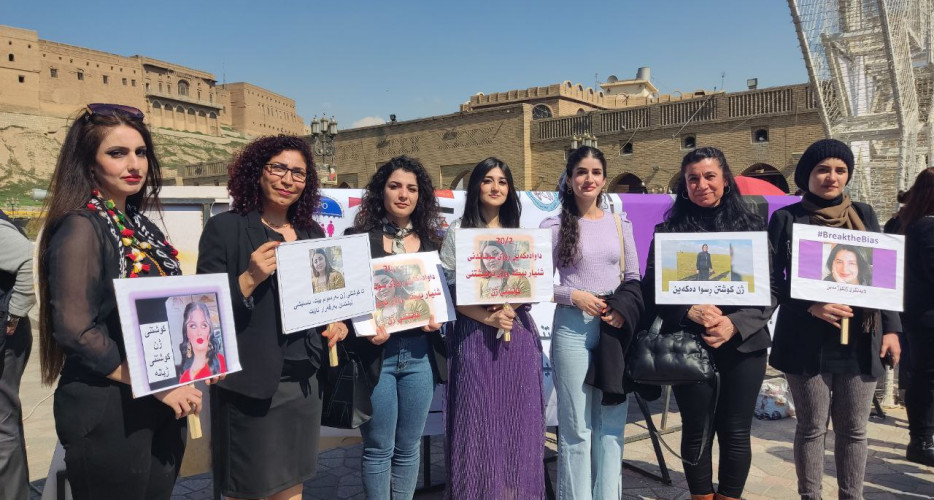

Ruwayda Mustafah
Honour killings occur across the world, but they are more commonplace in developing countries. They are not a practice exclusive to the Kurdistan Region, but the scale of violence against women is alarming. Last week, I wrote about the need to prioritize women’s welfare to curb femicides in the Kurdistan Region after a man was arrested for slitting his wife’s throat. This week, another woman was killed during Eid by her husband in a family dispute.
Gun control in the Kurdistan Region seems to be an impossible task for the government to pursue fully, as seventy percent of people in the region own weapons. The government instead plans to tighten gun laws, but it has been unable to close the gun markets despite an increase in gun violence, murders, and domestic violence.
What the government is doing at present to curb the scale of violence against women is simply not working. Almost every week a woman is killed. This is the most drastic measure of violence that manifests itself. The number of women seeking shelter houses is also increasing, in addition to the number of domestic violence reports. Many people will claim that we need to do more workshops on why honour killings are wrong, but it is an undeniable truth that killing an individual is wrong.
The public does not need to be convinced that the act of killing is wrong, but we do need to have more conversations. We need a healthy dialogue on our understanding of honour, and we must establish a multifaceted approach that prioritizes women’s welfare. Perhaps we should stop using the word “honour” altogether, and simply call it murder. Media platforms should depict every individual that kills a woman or girl for “honour” as a murderer, not as individuals who have killed to preserve their honour. Whether this will have any meaningful impact is questionable.
Why is it so hard to stop honour killings in the Kurdistan Region? This region is in the middle of a transitional period. We are seeing cultural shifts, and changes in attitudes, and with all that will come many challenges. Indeed, those who feel threatened or undermined will seek aggressive measures to maintain their dominance. It’s not the absence of education that has led to an increase in honour killings, but instead the fear of women having greater freedoms.
We have more women and girls attending primary, secondary, and higher education than ever. We have more workshops on gender-based violence and honour killings than ever before throughout the Kurdistan Region. There are regular campaigns against gender-based violence, and the leadership of the region often condemns violence against women. And yet, we continue to see women killed for “honour” or because of social disputes – why?
Throughout history, women have been tasked with upholding the honour of their families, but men have been given the freedom to have mistresses with little or no consequence at all. In this archaic and patriarchal system of beliefs that women are told to uphold for the sake of preserving their name, and that of their family, responsibility for upholding honour is not placed directly upon men – they only have to oversee “their” women’s honour.
Unfortunately, women play an active role in upholding honour systems too. In fact, it would not be far-fetched to claim that they are among the frontrunners here. This gives them a disillusioned perception of strength, moral superiority, and piety when they use the language of honour to differentiate themselves or they participate in the othering of women who they see violate the so-called honour codes.
What happens when you combine a culture of gun ownership, honour-based beliefs, and a society that is increasingly connected on social networking platforms – where perceptions of what is appropriate or not for women and girls continue to be questioned? When all this is coupled with the lack of a multifaceted approach to reducing the scale of violence against women, only then can you understand why it is hard to stop honour killings.